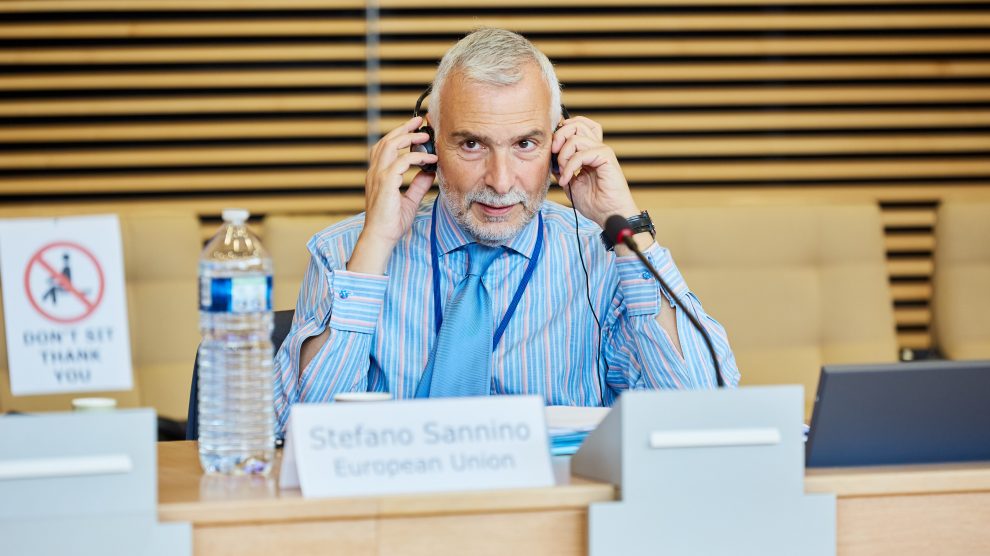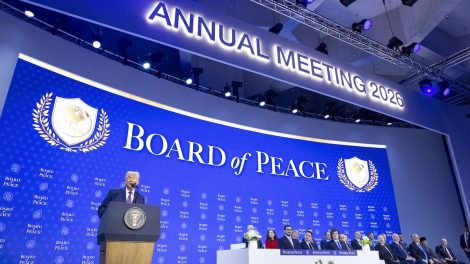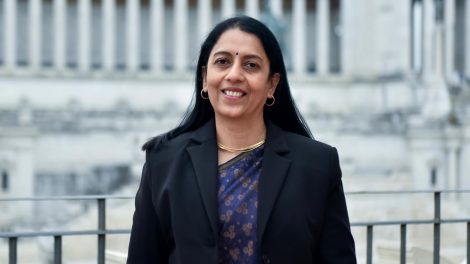A new DG. Stefano Sannino, an Italian diplomat with extensive experience in European diplomacy and former Secretary-General of the European External Action Service (EEAS), has been appointed to lead the newly established Directorate-General for the Middle East, North Africa, and the Gulf (DG MENA).
- The new body, comprising 500 officials, aims to enhance the EU’s regional engagement by fostering cooperation in economic development, security, energy, and migration.
- This initiative is part of the European Commission’s broader strategy to deepen relations with key southern partners and reinforce its geopolitical role in the Mediterranean.
- The directorate will operate under the direct oversight of the Commissioner for the Mediterranean Dubravka Šuica, reflecting a strategic shift in the EU’s external relations approach.
A milestone. In a post on X, Sannino underscored the importance of DG MENA, stating, “The Middle East, North Africa, and the Gulf are regions crucially important for the EU.”
- “We want to mobilise the full strength of the [European Commission] policies to bring the relationships with these regions to a new level. The future of our societies is inextricably linked,” he added.
- The creation of DG MENA follows a restructuring of the Commission’s external relations framework, which also includes the establishment of a parallel Directorate-General for Enlargement and Eastern Neighbourhood (DG ENEST).
- These changes reflect the EU’s commitment to tailoring its policies to address its neighbouring regions’ specific needs and challenges.
Šuica’s talks with Meloni. After the DG MENA launch, Šuica met with Italian Prime Minister Giorgia Meloni in Rome to discuss a proposed “Mediterranean Pact” between the EU and its southern partners.
- During the meeting, Meloni emphasised the importance of energy cooperation, particularly in connection with Italy’s Mattei Plan, which aligns with the EU’s Global Gateway strategy.
- Šuica commented after the talks: “Together, we will address shared priorities and achieve joint results to increase the security and prosperity of the region and the EU.”
Strategic priorities. DG MENA’s mission is to establish resilient and comprehensive partnerships with Mediterranean countries, including Algeria, Egypt, Israel, Jordan, Lebanon, Libya, Morocco, Palestine, Syria, and Tunisia.
- The directorate will prioritise: investment and economic development; infrastructure, energy, and transport; security, migration, and employment.
- This approach builds on frameworks such as the EU-Tunisia Memorandum of Understanding and recently enhanced cooperation with Egypt and Jordan.
Italy’s role in Brussels. Italy continues to play a central role within EU institutions.
- Last week, Ambassador Elisabetta Belloni—former Director-General of Italy’s Department of Information for Security (DIS), which oversees the country’s intelligence agencies, and former Secretary-General of the Ministry of Foreign Affairs—was appointed as Chief Diplomatic Adviser to European Commission President Ursula von der Leyen.
- Another notable appointment is that of Luigi Di Maio, former Italian Foreign Minister, as the EU’s Special Envoy to the Gulf region, a role that did not exist before his tenure.
- Last month, High Representative Kaja Kallas requested that the member states extend the mandate.
- Admiral Giuseppe Cavo Dragone also recently assumed office as President of NATO’s Military Committee, reinforcing Italy’s influence within key international institutions.





